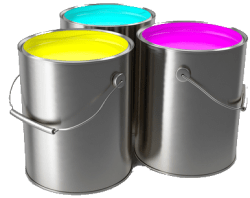On Being Right

“What? That trash pickup employee failed to take my empty paint cans!” I had been watching the local trash pickup truck stopping my our house for the weekly pickup of trash and recyclables when I made that statement. This was upsetting; I had specifically purchased material to set the remaining paint to become a solid substance, as required by our local recycle laws. And now, to have that employee leave it by the roadside, removing it from our recycle bin, was annoying. Pure ignorance on his part, proof that the trash company was doing a poor job of educating employees. Empty paint cans were acceptable for recycling and I had clearly placed them in our recycle “blue bin” for that purpose. Angry? Yes. Now I would have to put those cans back out for recycling next week. Trivial, yes, but annoying.
I then decided that this problem is likely happening to other residents, having their acceptable recycled items being rejected by untrained trash pickup employees. I would call the trash company to file a complaint and, to ensure I gave them the proper information, I decided to get the exact text from the county web site that had the recycle information to ensure the trash company understood. So, I pointed my browser to the county website and searched for the rules for paint cans. I read it carefully so I could give an exact quote.
Paint cans are acceptable for recycling, but are not to be placed in the recycle blue bins.
Huh? NOT to be placed in the blue bins? But I thought… Well, I was sure that paint cans were to be placed in the blue bin. That trash pickup employee was doing the right thing? Rejecting the paint cans? This hurt. A lot. I had been positive of my being right and that employee being wrong and had let my annoyance evolve into misspent anger and frustration on an issue that, in retrospect, was not only trivial, but in which I had been WRONG.
A teachable moment? Yes, definitely. I could just forget this, but this needed further reflection. I had let myself get angry, all because I felt my belief in what was right had been violated by this other person. And I had been wrong. There’s more; even if I had been right, was this a situation to justify the anger I felt? Clearly not. At worst, it would have been a minor error, easily rectified. In reviewing this, I began to realize that I put too much of who I am into what I believe to be true. That needs to change.
In revisiting prior situations, I see that my unquestioned belief in my perspective has been proved wrong before. A common practice of mine has been to assume I have all the information need when beginning a project, neither asking nor seeking additional information because I sensed I knew all that was needed. Yes, there have been successes, but more often I have found myself involved in a project that has gone awry, all because I failed to involve others in the decision process and in doing the work. Even successes are often flawed because, since others were not involved, there was no acknowledgment of the result. I need to change. How do I do that? By removing myself as the sole source of ideas and plans. Easily said; now I need to make that happen. Becoming angry or annoyed wastes precious moments in this short life. I will do better. Maybe being right all the time isn’t that important.
